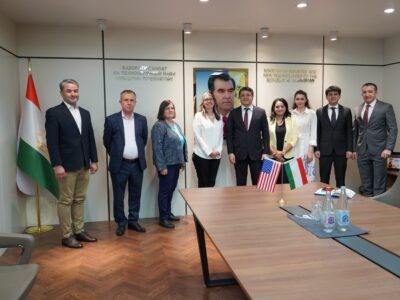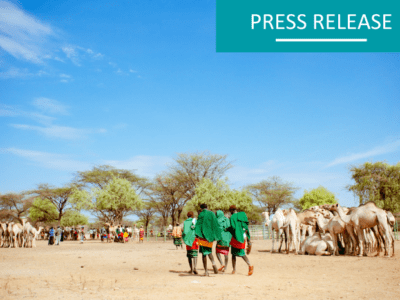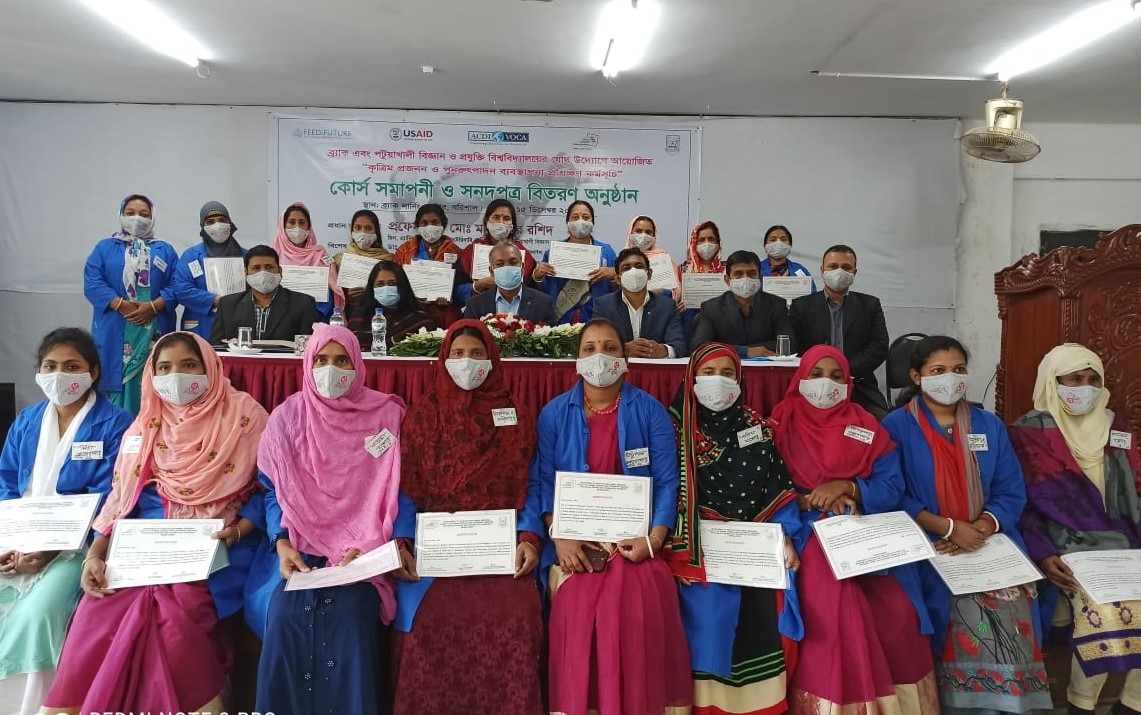
In Bangladesh, many women work in agriculture but are not able to engage in all aspects of farming. Due to cultural norms and gender stereotypes, few female livestock service providers (LSPs) exist in southwestern Bangladesh. Additionally, many female farmers in the region lack access to livestock services because social norms prevent them from interacting with male technicians.
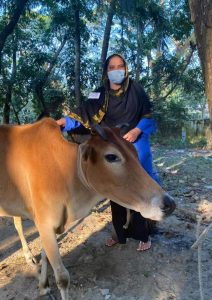
Shirin Akter Shilpy is an exception. In 2019, Shirin traveled from Barishal to Jashore to train to become an LSP. She was the only woman among 28 participants. Despite the adversity she faced as a woman in a male-dominate field, Shirin pressed on. She now provides primary livestock treatment, vaccination, and advisory services to up to 400 clients per month and earns USD 180 (BDT 15,000) per month to support her household and children’s education. Her new income has also allowed her to invest USD 470 (BDT 40,000) in a livestock inputs shop she manages with her husband.
Following Shirin’s success in becoming an LSP, she noticed a gap in women’s access to artificial insemination (AI) services in her community of Agailjhara, in the Barishal District, and sought ways to expand it.
AI Training & Internship Empower Women Livestock Service Providers
She took part in a livestock AI training that was the first of its kind in Bangladesh. From October to December 2020, the first-ever extensive, private sector-led training on livestock AI designed specifically for women took place in Barishal through a partnership between the Feed the Future Bangladesh Livestock Production for Improved Nutrition Activity, funded by USAID and implemented by ACDI/VOCA, and the Bangladesh-based BRAC Artificial Insemination Enterprise.
The 50-day training, led by a professor from the Patuakhali Science & Technology University’s Department of Animal Genetics and Breeding, built the capacity of 19 future female AI service providers. The participants learned about animal breed identification, animal reproductive systems, AI’s role in breed development, hormonal effects, reproductive diseases, gun-loading procedures and precautions, and the government’s breeding policies.
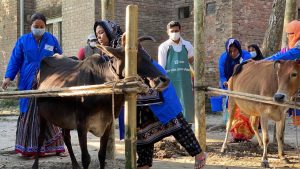
After the training, the Livestock and Nutrition Activity in collaboration with BRAC introduced the participants to local livestock offices, feed companies, veterinary medicine companies, union parishads (councils), and government agencies. Each participant, including Shirin, is now completing a one-month internship at their respective BRAC Area Sales Center to gain hands-on AI experience.
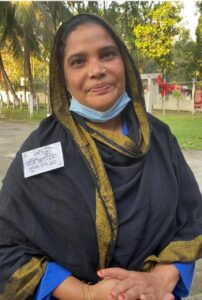
This novel women’s AI training is creating a cadre of female AI service providers who will not only improve cattle breeding through the use of proper technology and diversified services for female farmers, but also expand the roles of women and transform social norms in the livestock sector.
The Livestock and Nutrition Activity integrates women’s empowerment to improve economic opportunities, market access, decision making, and dietary diversity for various female market actors. Since 2015, the Activity has enhanced the capacity of 152,700 female farmers and empowered 697 women to become livestock market actors, such as livestock service providers, fodder entrepreneurs, community agents, feed dealers, retailers, and dairy processors. Through these upgraded roles and capacity building, women have significantly increased their decision-making power and control of income since the beginning of the Activity. These women are now building local capacity, improving nutrition and food security, and encouraging other women in their communities to pursue economic empowerment.
Shirin continues to spread her knowledge within her community. Along with providing livestock health services, she has shared messages about nutrition, trained more than 1,200 farmers in farm management, and continues to break livestock sector gender stereotypes while pursuing economic empowerment.
Learn more about the Feed the Future Livestock Production for Improved Nutrition Activity.
Learn more about our work in Bangladesh.


